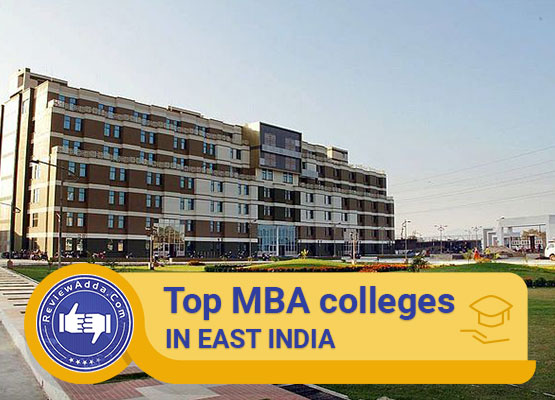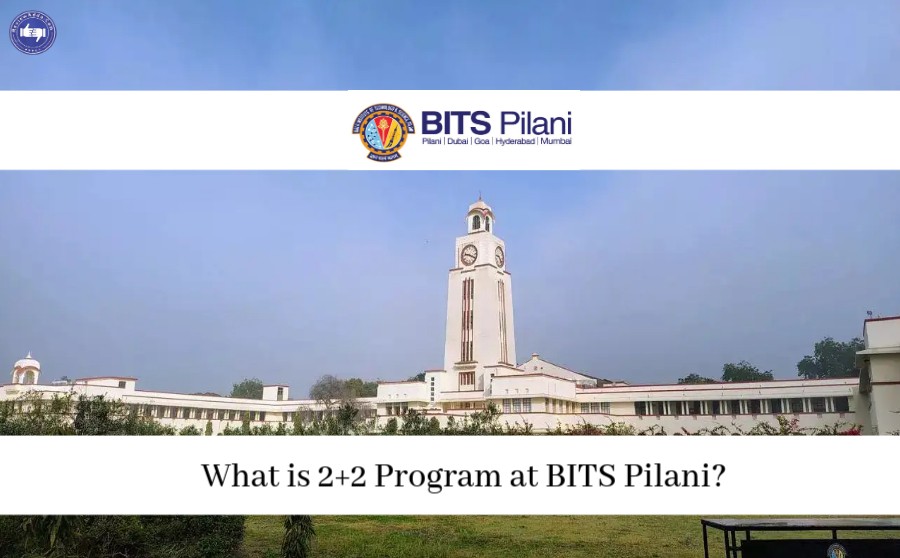Topic We Cover: Top MBA colleges in East India
1. The Role of GD and PI round
2. MBA Admissions in India
3. Top MBA colleges in East India
4. The Factors
5. The States

XLRI Jamshedpur is India's Best Private MBA College standing at par with the IIMs
We finally arrive to the penultimate part of the ranking series as the B-Schools of East India beckon. After covering the vast stretches of North, South and Western India, we learnt the various holistic and quantifiable metrics which separate the good B-Schools from the heap of extreme proportions. We will use the same methodology to consider B-schools from East India as well.
The procedure for MBA admissions isn't a short one. Leaving aside the arduous MBA preparation process which takes months upon months of unhinging concentration, the process which follows the exam such as the GD and PI rounds take a character of their own when their time comes.
The Role of GD and PI round
Gaurav Mehta, an MBA aspirant, has gotten the call from IIM Ahmedabad twice in the past three years. Unfortunately he failed to clear the GD rounds. ‘Being an introvert, I failed to make a lasting impression in the GD rounds. Even though my percentile was higher than most of my competitors, I simply couldn't cope with the finality of the GD round.
Nothing can be more painful than falling at the last hurdle, says Gaurav. ‘At the very least, they should give the student another shot at the GD. Judging someone's aptitude in ten minutes of facile conversation doesn't represent any kind of intelligence on the institute's part.
Gaurav's argument does hold some merit. Judging students based on performance in a one-off exam is bad enough, but to narrow the selection down further to a GD round seems very cruel. Recruiting expert Sameer Sethi explains the importance of the GD round and why it remains pivotal for MBA Admissions.
‘As recruiters, we have to look at the overall profile of the candidate. Someone with a decent set of technical skills, but below average interpersonal skills can become a liability for a company. This holds true especially for management students, whose entire job is based upon handling different aspects of operation in a company. A GD round is nothing but an indicator for the recruiter as to how will a candidate react in a stressful environment. I've hired many technically gifted candidates who collapsed in a high stress environment, and consequently I have realized the importance of hiring a well rounded candidate. Thus, a GD round is crucial'
Sameer makes valid points. From his point of view, it is difficult for college or company to take a risk on a candidate who may not have the necessary soft skills to cope with a job in management.
Gaurav agrees with Sameer in principle, but places a caveat. ‘If a GD round is so important, why don't the IIMs conduct the GD rounds first? Asking a student to spend eight to ten months preparing for an exam and then rejecting him in the GD isn't fair on the aspirant. For instance, if the GD round was held before CAT, I would have been rejected earlier and consequently wouldn't have wasted my time and resources on preparing for the exam. Such a step will help end the confusion surrounding the processes'
While Gaurav's point seems good enough on paper, it could present a logistical nightmare for the IIMs if his idea was implemented. Gaurav disagrees again. ‘Our government is always willing to spend thousands of crores on useless vanity projects. Why not set aside a little for the education sector?'
Gaurav refuses to budge and rightly so. His point isn't outlandish or inconceivable. It is just difficult to accomplish.
Isn't everything?
MBA Admissions in India
Most B-schools in India offer admissions to students based o performance in a two-step evaluation process. The process is well illustrated in the table below
|
Step number |
Procedure |
|
Step 1: Written exam |
· Filling up application form for the given MBA entrance exam · MBA exam preparation and attempting of test · Result declaration (Institutes usually contact selected candidates personally to give details regarding next round) |
|
Step 2: GD and PI round |
· GD round on any given topic along with 6-8 other aspirants. (Usually 2 or 3 are selected for next round) · PI round is next which narrows the candidates down further · Factors such as work experience, performance in graduating course and school also play a key role in building overall profile of candidate |
While the written exam gathers much more tension and drive amongst students due to the sheer of difficulty of the test, the GD and PI rounds can be equally demanding with all at stake at the final hurdle. Though the CAT exam is one of the most popular MBA entrance exams in the country, there are many more exams through which aspirants can gain a seat at a top B-school in the country. These exams have been listed below.
1. Common Admission Test (CAT)
Starting off with the obvious, CAT is one of India's most important and popular entrance exams. Besides being a one-way ticket to the elusive IIMs, many other top B-schools such as MDI, IMT and FMS accept CAT scores as a criterion for MBA admissions.
Conducted only once a year, the CAT paper is designed by one of the 20 IIMs in the country. Like mentioned before, the exam is the first step in a two-step-process of securing admissions to the prestigious IIMs.
Usually held towards the end of the year, CAT consists of four sections, namely Quantitative Ability (QA), Verbal Ability and Comprehension (VARC), Data Interpretation (DA) and Logical Reasoning (LR).
2. Xavier Aptitude Test (XAT)
As the name might otherwise suggest, XAT is the entrance test for admission to Xavier affiliated institutions such as XLRI, XISS and XIME. The popularity of the exam is derived from the renowned status of XLRI as being one of India's best B-schools on par with the IIMs.
The XAT exam consists of four sections, namely Quantitative Aptitude, English Language & Logical Reasoning, Decision making and GK & Essay.
3. Management Aptitude Test (MAT)
Arguably the biggest MBA entrance exam in the country in terms of number of applicants, MAT is B-school admission exam whose scores are accepted by a wide range of colleges and universities around the country.
Unlike other mainstream exams such as CAT and XAT, MAT is conducted four times a year across both online and offline mode. The months in which MAT is conducted are February, May, September and December. Most of the topics upon which the MAT exam is based are picked from the CAT syllabus such as Language Comprehension, Data Interpretation & Analysis and many more.
4. Graduate Management Admission Test (GMAT)
While CAT, XAT and MAT will potentially land you in a B-school in India, what does one have to do to get MBA admissions outside the country? This is where GMAT comes into the picture.
Conducted by GMAC, GMAT is an online exam conducted for admissions to a plethora of B-schools across the world. Every top MBA college or university requires the GMAT score as a compulsory criterion for admissions. From Harvard Business School to INSEAD or NUS, almost every top B-school in the world will consider an application only with an attached proof of a GMAT score.
The GMAT is conducted around the year with no specific dates. A candidate can appear for GMAT five times a year. The GMAT syllabus is divided into four sections, namely the Analytical Writing Assessment, Integrated Reasoning, Verbal and Quantitative.
5. Narsee Monjee Management Aptitude Test (NMAT)
NMAT is also conducted by GMAC, an exam for admission to the Narsee Monjee Institute of Management Studies (NMIMS) and its constituent institutes in Bangalore. Another one of the country's top business schools, NMIMS holds a prestigious standing amongst MBA aspirants for being a top draw management institution one can put complete faith in.
The NMAT also doesn't have specific dates and is up to the convenience of the students. A candidate can give the NMAT thrice a year. The NMAT exam syllabus includes Language Skills, Quantitative Aptitude and Logical Reasoning.
6. Symbiosis National Aptitude Test (SNAP)
Symbiosis is one of India's most trusted names in management education. SNAP is another one of the many MBA entrance exams students vie for every year.
SNAP scores act as the first steps to securing admissions to one of the 15 Symbiosis institutes around the country. Like most other MBA entrance exams, SNAP doesn't differ a lot from the conventional syllabus used by most other conveners. Some of the key sections of SNAP include General English, General Knowledge, Quantitative Aptitude and Analytical & Logical Reasoning.
7. Common Management Aptitude Test (CMAT)
Conducted by AICTE, CMAT was originally started to bring all AICTE-approved institutions under one exam. CMAT is held once every year and follows the usual syllabus which is otherwise followed by most exam conveners in the country.
The exam sections include Quantitative Technique, Logical Reasoning, Language Comprehension and General Knowledge. The problem with CMAT lies in its initial goal. While it aims to encompass all AICTE approved management schools under one exam, many top institutions do not accept CMAT scores for admission. This makes the exam slightly lackluster.
Nevertheless, CMAT stands at par with the like of MAT, CAT and XAT as the most contested management competitive exam in the country.
8. Indian Institute of Foreign Trade Entrance Exam
With a growing emphasis on International Business becoming necessary over the past decade, institutions such as IIFT have gathered a lot of clout amongst hard-core management aspirants over the years. For those who wish nothing more than becoming an international business professional, an MBA in IB is the way to go.
IIFT provides a two year MBA programme in MBA for graduates from a variety of different fields. Being a niche based B-school; IIFT is renowned in business circles for its top draw MBA programme focused purely on market and industrial dynamics.
The IIFT entrance exam is conducted only in offline mode and contains sections such as Quantitative Aptitude, Data Interpretation, Logical Reasoning and Current Affairs.
9. ICFAI Business School Admission Test (IBSAT)
IBSAT is conducted for admission to the renowned IBS schools spread across nine campuses in India. Conducted only in online mode by the Institute of Chartered Financial Analysts of India (ICFAI), the exam includes sections such as data interpretation, data adequacy, vocabulary, analytical reasoning and reading comprehension.
The nine cities across which ICFAI has a campus include Hyderabad, Ahmedabad, Dehradun, Bangalore, Jaipur, Gurgoan, Kolkata, Mumbai and Pune.
10. Karnataka Management Aptitude Test (KMAT)
KMAT covers most of the state affiliated universities and a number of private B-schools in Karnataka which offer MBA and PGDM programmes. Comprising of three sections, namely, Verbal Ability & Reading Comprehension, and Quantitative Ability & Logical Reasoning, KMAT is a two hour long exam organized on a state level in Karnataka.
The organizing body for KMAT is the Karnataka Private Post Graduate Colleges Association (KPPGCA).
11. Maharashtra Common Entrance Test (MAH-CET)
The Directorate of Technical Education, Maharashtra, is the organizing body of the MAH-CET conducted for admission to a number of different courses offered in colleges and universities in Maharashtra. Amongst these courses are MBA and PGDM courses offered by B-schools and universities located in Maharashtra.
The exam is divided into three sections which include Logical Reasoning, Quantitative Aptitude and Verbal Analysis & Reading Comprehension.
12. AIMS Test for Management Admissions (ATMA)
The Association of Indian Management Studies (AIMS) conducts the ATMA multiple times every year for admissions to a number of top B-schools in the country. Like MAT and CMAT, ATMA is conducted by a central body of management education.
The ATMA exam is conducted in the months of February, May, June and July. Additionally it is only conducted in online mode for a sum period of 3 hours. The ATMA syllabus includes Analytical Reasoning Skills, Quantitative and Verbal aptitude.
Top MBA colleges in East India
Ranking of some of the country's best B-schools has to be done in a methodical and systematic manner; otherwise the rankings would eventually represent nothing more than opinions. Each B-school has its own special qualities. For instance, IIM-A is more famous for its course in finance while ISB Hyderabad is an epicenter for consulting firms such as KPMG and Deloitte.

IMI is a trusted name for management education in North India and now it has spread its wings to Bhubaneswar and Kolkata
Similarly, each college has to be appreciated for its strong points and drawbacks at the same time. Certain B-schools have a very theoretical curriculum, but a brilliant placement cell which ensures good quality recruitment. Sometimes a college may not have a stable placement cell due to a number of reasons, but it has a very well integrated and balanced curriculum.
To differentiate such factors and ingratiate them into the rankings requires a balanced approach across the spectrum of factors which are considered to rank a given college. This implies giving equal weightage to each chosen factor.
The Factors
The factors which have been chosen to rank MBA colleges in East India are given below
- College perception
- Alumni reviews
- Academics
- Placements
These rankings, as one might see subsequently, do not include any government affiliated or funded colleges such as the IIMs or FMS. These colleges have not been included simply because of the obvious popularity of these colleges.
Since we are analyzing B-schools in East India, most MBA aspirants from this part of India will be aware of the popularity of IIM Kolkata and other government colleges. On the other hand, there knowledge about the various private B-schools may not be as complete. Hence, only private colleges have been included in the rankings list for maximum knowledge dispersion.
 Get Updated Review ( Voice Based Alumni Feeback)
Get Updated Review ( Voice Based Alumni Feeback)
-
 Check Review (Alumni Feedback) - Lovely Professional University - [LPU] – Click Here
Check Review (Alumni Feedback) - Lovely Professional University - [LPU] – Click Here -
 Check Review (Alumni Feedback) - Amity University – Click Here
Check Review (Alumni Feedback) - Amity University – Click Here -
 Check Review (Alumni Feedback) - UPES Dehradoon – Click Here
Check Review (Alumni Feedback) - UPES Dehradoon – Click Here -
 Check Review (Alumni Feedback) - SRM University Sonipat – Click Here
Check Review (Alumni Feedback) - SRM University Sonipat – Click Here -
 Check Review (Alumni Feedback) - Ansal University – Click Here
Check Review (Alumni Feedback) - Ansal University – Click Here
The States
The states which are being chosen for ranking the top MBA colleges in East India are:
Assam
Arunachal Pradesh
Bihar
Chhattisgarh
Jharkhand
Manipur
Meghalaya
Mizoram
Nagaland
Sikkim
Tripura
West Bengal

Rungta is a very trusted name in East India for technical and management studies
Top MBA colleges in East India have been ranked below:
|
Ranking |
College/University |
MBA or PGDM |
Perception (ou t of ten) |
Alumni reviews (out of ten) |
Academics (out of 10) |
Placements (out of 10) |
|
1 |
PGDM |
9.9 |
9.8 |
9.8 |
9.9 |
|
|
The best private B-school in the country |
Student feedback is overwhelmingly positive |
A well balanced curriculum which has been doctored multiple times to surgically enhance industry integration |
Placements are excellent across the board |
|||
|
2 |
MBA |
8.4 |
8.4 |
8.2 |
8.2 |
|
|
Is popular along with overall KIIT brand in East India and other parts of the country |
Reviews are largely positive |
Focus is mostly on traditional techniques of management, but reasonably balanced with several other industry-related programmes |
Placements are decent, but quality vs quantity factor comes into the picture |
|||
|
3 |
PGDM |
8.4 |
8.4 |
8.4 |
8.4 |
|
|
Popularity is derived from the Xavier tag |
Alumni review are reasonably positive |
Academic programme is well designed on the basis of the curriculum at XLRI |
Placements are good, but not as good as XLRI |
|||
|
4 |
PGDM |
8.2 |
8.4 |
8.0 |
8.0 |
|
|
One of the oldest MBA colleges in Orissa. Relatively unknown outside the state |
General alumni perception is positive |
Reasonably decent infrastructure, but quality of teaching is suspect |
Placements are below average due to lack of industrial outreach |
|||
|
5 |
MBA |
8.1 |
8.2 |
8.1 |
7.9 |
|
|
Primarily known across India for its B.Tech programme. MBA is relatively unknown |
Feedback for MBA programme is relatively positive |
Intake is low, which helps the quality of teaching, but lack of prominent faculties a big problem |
Placements for MBA students aren't as robust as B.Tech graduates |
|||
|
6 |
PGDM |
8.2 |
8.0 |
8.0 |
8.0 |
|
|
Known mostly because of the famous Delhi campus |
Alumni reviews are mixed about IMI-B |
Intake is low, but integration with industry-based courses found lacking |
Placements are average when compared to other top B-schools |
|||
|
7 |
MBA |
8.2 |
8.2 |
8.0 |
8.0 |
|
|
Reputation rests upon popularity of XLRI |
Alumni reviews are generally decent |
Academics focus is well knitted between theoretical and practical demands |
Placements are good, but not as high profile as XLRI |
|||
|
8 |
Institute of Management and Information Science, Bhubaneswar |
PGDM |
7.8 |
7.9 |
7.9 |
7.8 |
|
Unknown outside nearby regions in Jharkhand and other parts of Central and Eastern India |
Feedback implies the college is largely average |
Curriculum isn't up to the standard of modern management needs |
Placements at IMIS are not up to the mark |
|||
|
9 |
MBA |
7.7 |
7.8 |
7.8 |
7.8 |
|
|
Unknown outside the state |
Perception is mixed between positive and negative reviews |
Due to affiliation with state university, curriculum is too narrow for optimum management studies |
Placements at Rungta are average |
|||
|
10 |
PGDM |
7.9 |
7.9 |
7.9 |
7.6 |
|
|
Known well due to the popularity of Delhi campus |
Alumni perception is relatively positive |
Academics aren't as well structured as Delhi campus since college was only recently established |
Placements are good, but not up to the scale as of now |
|||
|
11 |
MBA |
7.6 |
7.6 |
7.7 |
7.5 |
|
|
Well known for B.Tech programme. MBA not as popular |
MBA alumni perception is relatively negative |
Academic focus is restricted to theoretical studies |
Placements are below average |
|||
|
12 |
MBA |
7.5 |
7.6 |
7.7 |
7.4 |
|
|
Unknown outside the state |
Alumni reviews are comparatively negative |
Academics are skewed towards rote learning of management concepts |
Placement cell isn't adequate when compared to dexterity of other MBA colleges |
|||
|
13 |
MBA |
7.4 |
7.5 |







